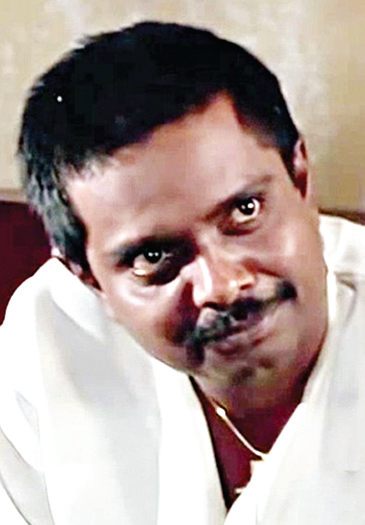There is a moment in Mahesh Bhatt’s 1991 film Sadak when Sadashiv Amrapurkar’s Maharani, an eunuch who is also a brothel madam, is hunting for prey or rather two women who have escaped with their lovers from her clutches. In a parking lot where the silence is thrumming with fear and foreboding, Maharani is literally playing a cat-and-mouse-game, entreating the women to come out because in any case, she is going to get them. Sooner or later. In the long minutes that follow, you can actually feel the power of evil and the sick horror that hunted women go through even outside the context of a film narrative.
**
You also remember the scene in the same film, where Soni Razdan, playing a violated and diseased sex worker jumps out of a hospital window to her death at the sight of a shadow on the wall because it tells her that Maharani has arrived to take her back to a living hell. **
In retrospect the representation of the third gender in this film may have been negative but Sadashiv Amrapurkar was terrifyingly compelling in the film. His theatre background did not let him play this role with broad strokes. From his effeminate gestures, to the glinting, dark, probing gaze looking at an innocent young woman, to the smile that sent a chill down your spine, to the voice that belonged neither to a man nor to a woman, to the feminine clothes, to the crude language, he created a villain that transcended what we know of villainy in our cinema.
**
He went some place beyond. Watch his Hindi film debut in 1981 as the underworld figure Rama Shetty in Govind Nihalani’s Ardh Satya. Naseeruddin Shah refers to Om Puri in his recent autobiography, as an actor who had a salt-of-the-earth quality and it was fitting that Puri in his breakout role as a police officer in Ardh Satya should have been pitted against Sadashiv. Because not many villains before or since him have had the smell of a sweat-and-blood reality clinging to them. The face-off between the two actors was a thing of beauty and art. Both restrained and yet bristling with antagonism. Om, taciturn and Sadashiv, mocking his uniform, his idealism with a barely- there grin . The two would come together many years later in Gupt where he played the fanboy assistant to Om Puri’s brave police inspector and the two again showed how even in the limited performance spaces in Hindi films, great actors remain great.
**
There were many films where he played caricatures. He was the evil, conniving father in Inder Kumar’s Ishq, the loud, garish villain of Anil Sharma’s monstrosities like Hukumat but he sparkled in the films that spoke to the actor in him. Remember him as the tough-talking and yet gentle police officer in Mahesh Bhatt’s telefilm Swayam in 1991? He was as compelling in this role as he was in Sadak.
This was an actor who was a master of his craft, a literate man with a Masters in history, a doyen of Marathi theatre, a social activist and philanthropist,working with organizations like Samajik Krutadnyata Nidhi, Andhashraddha Nirmulan Samiti, Snehalaya and many more.
And he was the man who in his 60s was brutally beaten up last year for protesting against the wastage of water during Holi. We may remember him for the roles he did in cinema but his life was was bigger than our perception of him. He was not just an actor but a well-rounded, socially aware human-being. We saw him last in 2012 in Dibakar Banerjee’s piece in Bombay Talkies, where with just a few lines and authority, he showed that a master never loses his touch and always leaves a memory in his wake. Sadashiv Amrapurkar left many.







 with
with